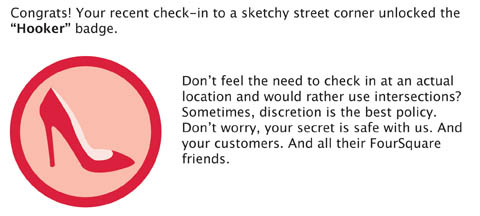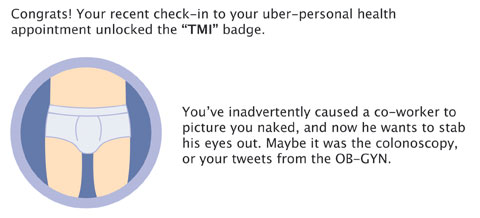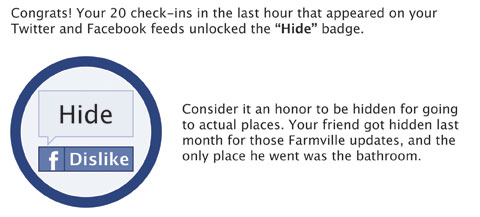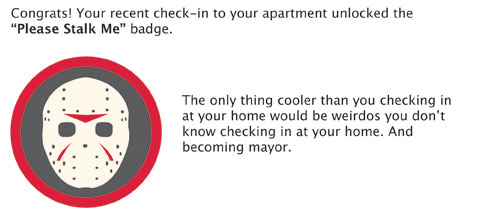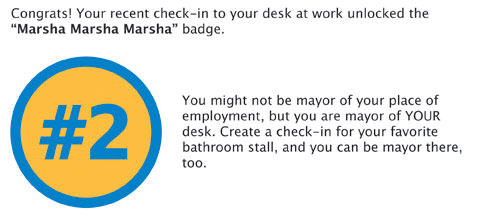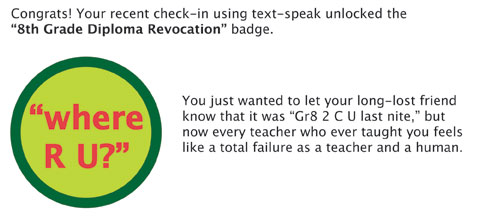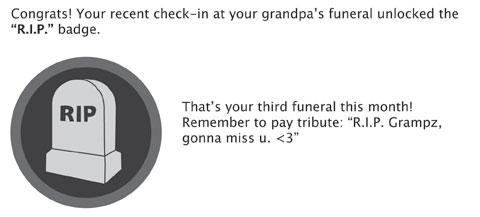The news that Foursquare is partnering with MTV in September to give virtual badges to Foursquare users who get tested for sexually transmitted infections is news for many reasons, one of which being that it reminds us that many media companies are still trying to wrap their minds around Foursquare (and all social media).
If you’re a newbie to this whole social media universe…
Foursquare and similar services use smart phones’ GPS capabilities to locate where users are and what’s around them. Users can then “check in” to a venue by tapping it on a list — or typing in their own.
Foursquare users already receive scout-inspired merit badges for a range of check-in accomplishments. These include “Gym Rat” for hitting the gym 10 times in a month or “Crunked” for checking in to four or more places in a single night.
Why would you want to advertise where you were? Some businesses are offering specials to people who check in, and others offer discounts to “mayors,” the Foursquare user who has more checkins at a given location than any other user who has checked in there within the last two months. And, the game mentality of the app drives users’ desires to earn as many points and badges as possible. I know a couple here who would check into funerals if they could.
The businesses who do offer incentives for people to check in there seem few and far between. Some of the businesses of which I’ve become mayor have said, “Foursquare? Like whatchoo’d play in grade school?” It’s nowhere on the radar for them, and when I explained the potential rewards, they’d say, “Wow, the things you can do these days.” But, as the Wall Street Journal has pointed out, there are businesses trying to embrace it.
When The Wall Street Journal unveiled its metro section for Greater New York, it included some Journal-specific Foursquare badges. When the Journal “checked in” near Times Square in May when the area was evacuated for a bomb threat, it was the first time the Journal had used Foursquare to break news. In the months since then, there have been musings as to how reporters can use Foursquare to find sources. In places like New York, you might find enough people on Foursquare at a given moment who will see your alerts and find you. But in smaller places, it could be hit or miss.
I’m curious as to how media companies will gauge success with Foursquare. Until there’s a model for how to integrate it into a media company’s mission, I think the best way to judge it will be reminiscent of the Supreme Court’s obscenity statement in the ’60s: “I know it when I see it.”

